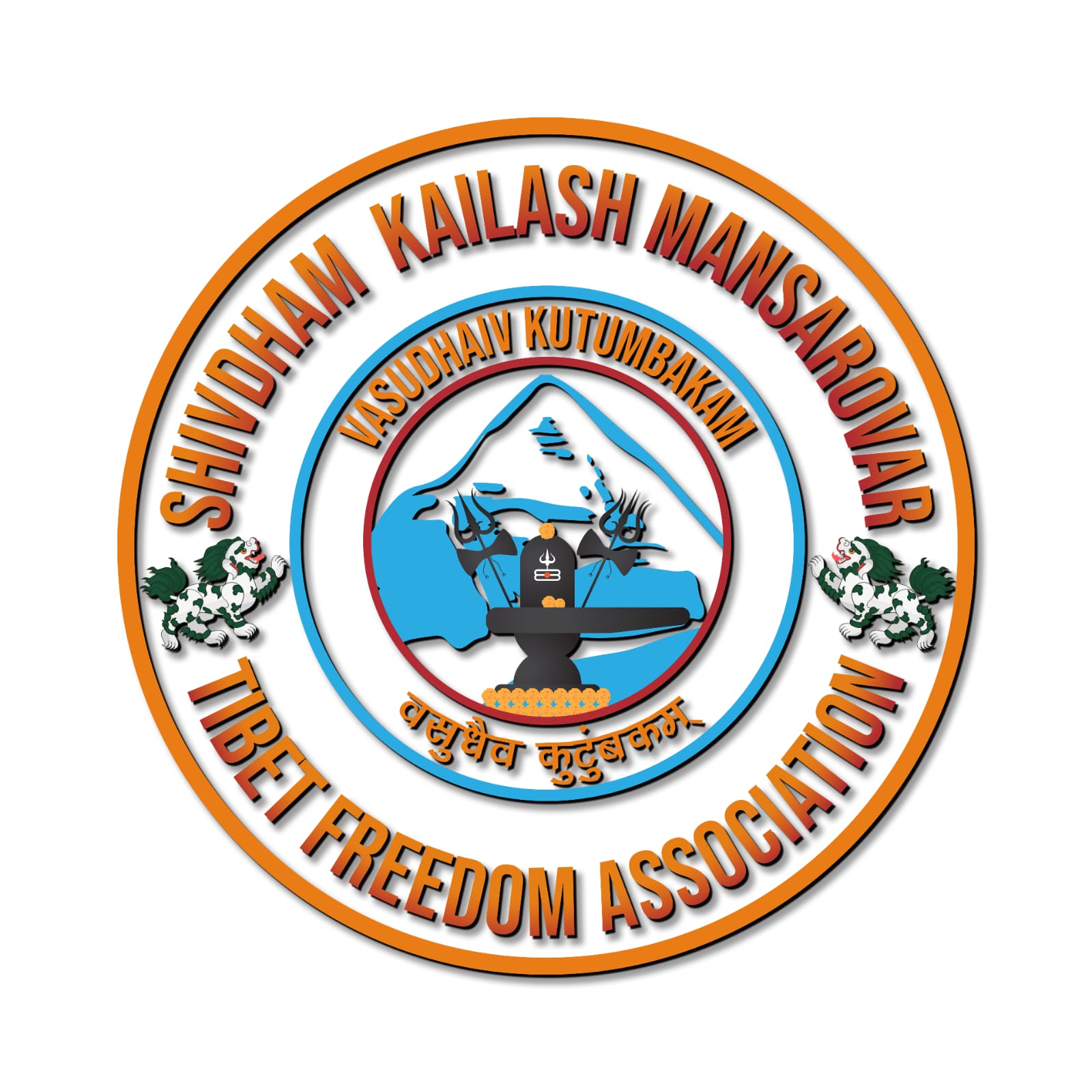The inauguration of the Shivdham Kailash Mansarovar Tibet Freedom Association marked a significant step towards advocating for the freedom of Kailash Mansarovar and Tibet. The association’s mission is to spearhead a campaign for the liberation of this sacred pilgrimage site from Chinese control, ultimately enabling pilgrims to undertake the Kailash Yatra without the need for passports and visas. Along with the right to visit Mansarovar Kailash the aim is also to free Tibet from China. There are 439.4 billion cubic metres of water in Tibet, 60 times more than in the rest of China. Also China is building dams over these rivers with the purpose to create havoc in the world by interrupting water supply.
The event saw the convergence of eminent personalities, scholars, and activists from various countries, united in their commitment to this noble cause. With a shared vision of ensuring religious freedom and access to sacred sites, the association aims to harness the power of collective action to bring about tangible change.
On the auspicious occasion of Ram Navami, the Founder, Manavendra Singh, led the initiation of the movement. The program was chaired by Prof. V.K. Kulwant. He is the former chancellor of Patanjali University, Haridwar. Other renowned personalities were IT specialist Dr. Avinash and keynote speaker Prof. Om Prakash lending their expertise to the proceedings.
The formal proceedings were led by Manavendra Singh, the coordinator of the movement, who guided discussions on the agenda. During the deliberations, Manavendra drew insights from the organisational structures and methodologies of various entities previously engaged in similar endeavours, aiming to establish a transparent, democratic framework.
Dinesh Bhati introduced the concept of “Mahadweep” to the audience, emphasising the necessity of maintaining a positive mindset and encouraging everyone to contribute suggestions for the organisation. It was proposed to compile a list of individuals willing to dedicate time for the organisation’s dynamism, ensuring clarity on roles and responsibilities from the grassroots to the national level, fostering mutual accountability.
The emphasis remained on fostering a culture of shared responsibilities and mutual cooperation among members, transcending hierarchical boundaries and promoting collective ownership of the organisation’s objectives.
Dr. Avinash Ji stated that China is not our natural neighbour. If it were, then the ITBP (Indo-Tibetan Border Police) would also have China’s name in it. We need to become strong first. We need to understand the importance of the ‘Bhole Baba’ before addressing the issue of Tibet. We need to make Tibetan literature available for study to everyone. He emphasised that we should start discussions from our own homes. If we can connect the public to the movement, then our goal will automatically be achieved.
Mausami Das Ji extended her warm wishes for Bihu to everyone. He emphasised the importance of promoting and propagating Bihu in Assam and Arunachal Pradesh first. She also stressed the need to raise awareness about Bihu in all border states connected to Tibet.
Dr. Siddhartha Ji expressed his heartfelt connection to this noble cause and pledged his unwavering support, stating that he would tirelessly work towards its success, akin to a hardworking squirrel.
Mr. Manoj Gahtori, a key figure behind the association, emphasised the symbolic significance of Kailash Mansarovar and invoked the blessings of Lord Bholenath to guide their efforts. He stressed the importance of organising the association in a structured manner, advocating for literature, art, and writing to be integral components of the movement. Mr. Gahtori also announced the composition of a special hymn dedicated to the cause.
Colonel Puran Singh echoed Mr. Gahtori’s sentiments, highlighting the historical and cultural importance of Tibet and Mansarovar. He underscored the need for global recognition of Tibet’s sovereignty and urged unity in the fight for freedom. Drawing parallels with other successful liberation movements, Colonel Singh emphasised the importance of resilience and strategic communication.
The association’s agenda includes leveraging the narrative of Shiv Katha as a medium for advocacy. This approach aims to resonate with people across different cultural backgrounds and foster greater awareness and solidarity for the cause.
Among the distinguished guests, Professor Nanda Shekhawat emphasised the importance of grassroots mobilisation and community engagement. He stressed the need to educate people about the real issues at hand and called for concerted efforts to develop a cohesive narrative.
Dr. Abhishek highlighted the role of partnerships with government agencies and businesses in advancing the association’s objectives. He emphasised the need for inclusivity and collaboration across sectors to maximise impact.
The association’s charter, presented by renowned Chartered Accountant Mr. Rajesh Kumar, outlined its organisational structure and detailed action plan. Key focus areas include research, advocacy, and outreach, with a strong emphasis on cultural diplomacy.
Dr. Balwant Singh, Dr. Vimal Rai, Pro. PK Singh, Vikas Kumar, Sadhna Chaudhary, Suraj Chaubey, Sandeep Kharwar, Naina Pathaniya, Deepak Singh, Shubham, Ragini Gupta, Atharv Pandey and Jitendra Kumar were present during this auspicious event.
For regular updates follow our facebook page: https://www.facebook.com/manvendraforsdtfa

